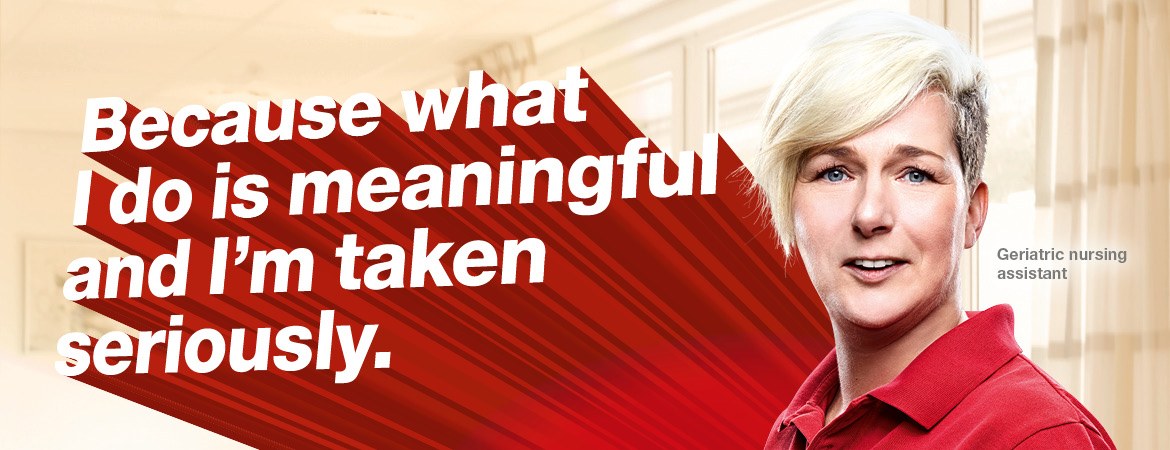
People who work in geriatric care invest their enthusiasm and their energy every day in doing a rewarding job. And they often receive a smile and gratitude in return. No day is like another. The wide range of tasks requires initiative and a lot of drive. Geriatric carers are attentive and specialists in human interaction – the job is never boring. It has little in common with an office job; what counts is enthusiasm and compassion, not the university diploma.
Entering geriatric care from another sector is possible. As a nursing assistant or a dementia assistant you do not need a medical diploma or a nursing qualification.

Kursana provides a wide range of further training and qualifications as well as fitness courses at the Kursana-Akademie.
Nursing assistants aid the certified nursing staff. They are there to see that residents are comfortable and responsible for personal patient care. Medical training is not necessary. What is important is that you enjoy working with the elderly and that you are able to take accept responsibility.

Interns are always welcome. Contact the facility near you.
Dementia Assistants (in accordance with § 87b SGB XI) carry out non-medical tasks with the objective of providing human contact and warmth. They work specifically with dementia sufferers.
The paragraph regulates employment of additional staff to take care of residents with intensive care needs. The association of statutory health insurances (GKV) has established guidelines to regulate tasks and qualifications.
To work as a dementia assistant, you must have completed the following:
This qualification is offered by many colleges and training institutes and is subsidized by the federal employment center.